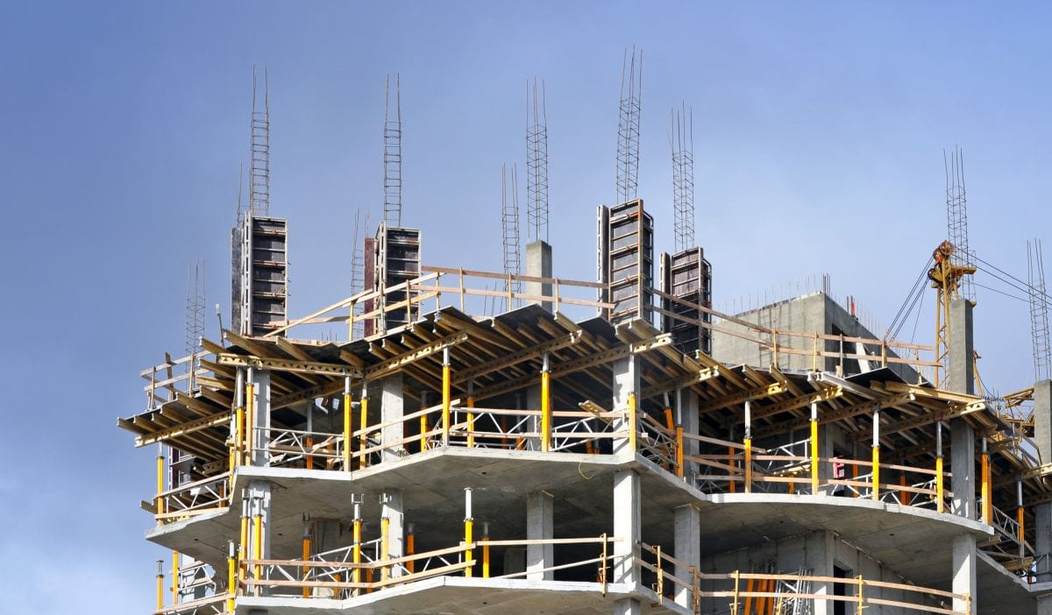In early March, I bid on an exterior paint job in the affluent community of Lake Oswego, Oregon. The lady of the house said something to me that no customer has ever said in my 40 years as a painting contractor.
She told me that she suspected that one of the other bidders on the job might have been “illegal.” I asked if she meant an unlicensed contractor or an illegal alien. She suspected the latter, and said, “I would never hire illegals when I could give the job to an American citizen like you.”
Though we’re in the midst of one of the coldest, wettest winters on record here, she wanted the work done immediately because her family needs to list the home for sale by April 1st. We got the job, a three-story contemporary, and squeezed the work in between rainstorms.
That same week, on a remodeling project I’d bid successfully for, I commiserated with a drywall contractor, who, like me, loses jobs because we don’t have the manpower to get them done quickly, and, in many cases, much less expensively. “I will never be the person who brings in a bunch of Mexicans to get jobs,” she said.
However, just last year, after successfully bidding on a local private elementary school, I brought in a partner who has employees that are Hispanic, some of whom do not speak English. The multi-building project had to be completed before the start of the school year, and there was no way my small business could have met the deadline.
Welcome to the front lines in the construction industry’s immigration dilemma. If you’re employed to any meaningful extent in the trades, you’re going to work alongside and have interactions with undocumented immigrants. That’s the way it is in Portland, Oregon (a sanctuary city), and in a growing percentage of the major metropolitan marketplaces of the U.S.
You’re going to get involved in projects that include undocumented framers, painters, roofers, bricklayers, ditch-diggers, and scaffold erectors. You’ll share available parking with legions of landscape maintenance workers. On your way into a job site you’ll meet foreign-born demolition crews removing old cabinetry, and on your way out you’ll meet squads of Latina maids coming in to put a final spit shine on all surfaces. You’ll become accustomed to lower-echelon tradespeople who are unable to speak English.
A certain breed of purist may decline to participate if noncitizen labor is part of the deal. In a progressive-leaning city like Portland, on both commercial projects and even many residential jobs, doing so will put you out of an important business loop.
For larger and even moderately scaled construction companies, it can be difficult finding U.S.-born or even legal immigrant citizens to do the grunt work or even fill the skilled positions. Meanwhile, there is a seemingly unlimited conduit providing immigrant laborers who will. There’s an immigrant running up a ladder with a scraper in hand, or taking a sledgehammer to a cinderblock wall. His citizen counterpart is often not available, on a white-collar track doing the jobs Americans will do.
Unless you’re dead-set against such association on ideological grounds, you may end up hiring undocumented immigrants as your company grows. As your fortunes improve, you may even unknowingly hire illegal labor to perform maintenance/repair/remodel on your own property, from a small business or corporation that has reacted to labor force realities and given undocumented workers a place at the table.
You grow to respect the hardest workers; even a construction-working immigration hawk can at times empathize with their plight: the political and economic realities of their home countries. From time to time, despite your fears about an immigrant invasion, you’ll reflect that if only there was some kind of accountable, equitable, competently managed—and, when justified, punitive—system in place to allow for the workers without the invasion.
Things are tough all over, and the noncitizens know it. You sense that the last time you saw them similarly concerned was in the days after 9/11, when they understandably feared that the easy ride into America was about to get a lot more difficult, and worried about an immigration crackdown that never came.
Candidate Donald Trump’s orchestration of intense focus on immigration policy sent shockwaves through immigrant populations, including the communities of the people with whom I sometimes share a job site. They’re working more diligently now, worried that the tide may finally be turning on illegal entry, visa overstays, and the chaos of a borderless nation. And make no mistake, the word has gone out: stay out of trouble. There’s a sense that when the chips fall—pardon the painting pun—undocumented immigrants who run afoul of the law are in real danger of being deported. Many believe that the passage of Kate’s Law is (hopefully) inevitable.
Construction work goes on as it always will, and jobs get done. After work, the citizen builders go to their watering holes, the undocumented go to theirs, and sometimes the twain meet.
But if you look at Europe, the refugee crisis that threatens to obliterate the national and cultural sovereignty of a country like Germany, you’re right back to square one—the position of unrepentant immigration hardliners who vote immigration as the ballgame issue.
This is because, until the advent of President Trump, you’ve had absolutely no faith that post-millennial American leadership, Republican or Democrat, was willing and/or able to stop such a human deluge from happening here.









Join the conversation as a VIP Member